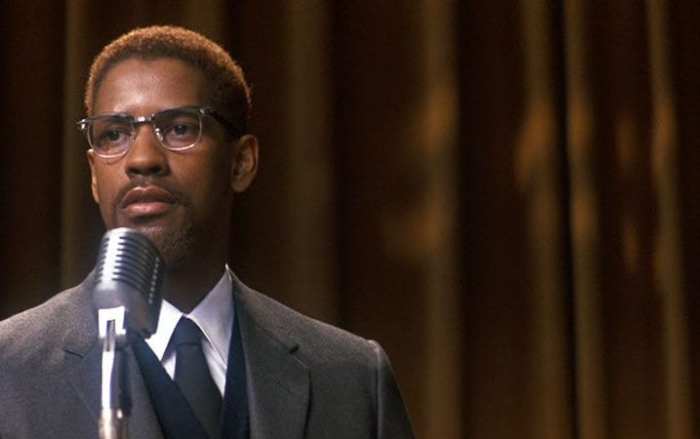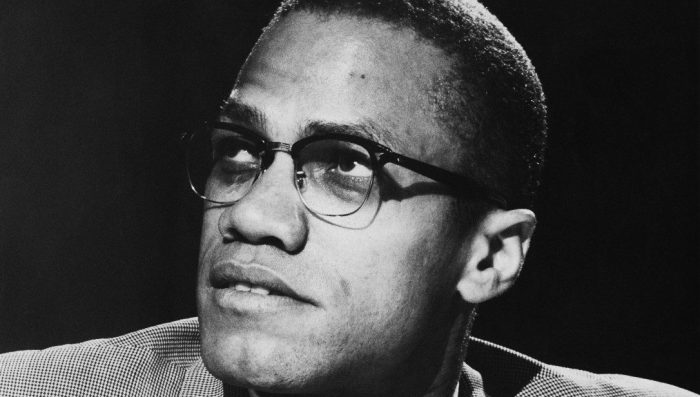My first conk by malcolm x – Malcolm X’s “My First Conk” sets the stage for this enthralling narrative, offering readers a glimpse into a story that is rich in detail and brimming with originality from the outset.
Malcolm X’s early life, marked by racism and discrimination, shaped his worldview and led him to the Nation of Islam. His pilgrimage to Mecca, however, brought about a profound transformation in his beliefs, paving the way for his enduring legacy.
Malcolm X’s Early Life and Influences

Malcolm X, born Malcolm Little, was an influential African-American Muslim minister and human rights activist. His early life experiences played a pivotal role in shaping his worldview and activism.
Malcolm X was born in Omaha, Nebraska, in 1925. His father, Earl Little, was a Baptist minister and a follower of Marcus Garvey’s Pan-Africanism movement. Earl Little’s activism drew the attention of the Ku Klux Klan, and the family faced harassment and violence.
In 1929, Earl Little was murdered by unknown assailants, an event that deeply affected Malcolm X.
Childhood and Family
Malcolm X’s childhood was marked by poverty and discrimination. His mother, Louise Little, struggled to raise her children after her husband’s death. The family moved frequently, living in poverty-stricken neighborhoods in Lansing, Michigan, and Milwaukee, Wisconsin.
Malcolm X’s autobiography, “The Autobiography of Malcolm X,” details his early life and experiences, including his first conk. For a deeper understanding of the historical context, I highly recommend checking out fiveable ap world unit 8 . This resource provides comprehensive notes and practice questions that can enhance your knowledge of the era in which Malcolm X lived.
Returning to the autobiography, the first conk experience serves as a pivotal moment in his transformation and sheds light on the challenges faced by African Americans during that time.
Education and Experiences
Malcolm X attended public schools but dropped out at the age of 15. He moved to Boston, where he worked various odd jobs. In 1946, he was arrested and convicted of burglary and spent six years in prison.
Influence of Racism and Discrimination, My first conk by malcolm x
Malcolm X’s experiences with racism and discrimination profoundly influenced his worldview. He witnessed the Ku Klux Klan’s violence against his father, the poverty and segregation faced by African Americans, and the racism he encountered in his own life. These experiences led him to reject the nonviolent approach to civil rights activism advocated by Martin Luther King Jr.
and to embrace a more militant approach.
The Hajj and Personal Transformation: My First Conk By Malcolm X
Malcolm X’s pilgrimage to Mecca in 1964 marked a profound turning point in his life. During his journey, he experienced a transformative revelation that significantly altered his spiritual and ideological beliefs.The Hajj, an annual pilgrimage undertaken by Muslims to Mecca, is a deeply spiritual and communal experience.
Malcolm X’s pilgrimage allowed him to witness the unity and diversity of the Muslim world, as he interacted with people from all walks of life, regardless of race or background. This experience shattered his previous notions of racial superiority and led him to a profound realization of the common humanity shared by all people.
Shift in Views on Race and Religion
Malcolm X’s pilgrimage to Mecca also led to a shift in his views on religion. Before his journey, he had embraced the teachings of the Nation of Islam, which promoted a separatist ideology and emphasized the inherent superiority of black people over whites.
However, his experience in Mecca exposed him to a more inclusive and tolerant interpretation of Islam, which emphasized the unity of all believers.After his pilgrimage, Malcolm X renounced his affiliation with the Nation of Islam and adopted a more orthodox interpretation of Islam.
He began to preach a message of racial harmony and unity, calling for the end of racism and the establishment of a just and equitable society for all. Malcolm X’s transformation during the Hajj had a profound impact on his life and legacy, and it continues to inspire people today.
The Autobiography of Malcolm X

The Autobiography of Malcolm X, co-authored with Alex Haley, is a seminal work in American literature and history. It chronicles Malcolm X’s extraordinary journey from a troubled youth to a prominent civil rights leader.
The autobiography provides a raw and intimate account of Malcolm X’s experiences with racism, poverty, and incarceration. It also sheds light on his intellectual and spiritual evolution, culminating in his embrace of Islam and his transformation into a symbol of Black resistance.
Themes
The autobiography explores several key themes, including:
- Racism and White Supremacy:Malcolm X unflinchingly exposes the pervasive racism and white supremacy that shaped his life.
- Black Identity and Self-Determination:The autobiography emphasizes the importance of Black identity and self-determination, urging Black people to embrace their heritage and fight for their rights.
- Education and Knowledge:Malcolm X highlights the transformative power of education, emphasizing the importance of acquiring knowledge and critical thinking skills.
Perspectives
The autobiography offers a unique perspective on the Civil Rights Movement, providing insights from a radical and influential figure.
- First-Hand Account:As a firsthand account of Malcolm X’s life, the autobiography provides a vivid and authentic portrayal of the events and ideas that shaped the Civil Rights Movement.
- Critical Examination:Malcolm X critically examines the strategies and tactics of the Civil Rights Movement, offering a nuanced understanding of its complexities.
Writing Style
The autobiography is characterized by its raw, emotional, and engaging writing style.
- Autobiographical Narrative:The autobiography is written in an autobiographical narrative style, allowing readers to experience Malcolm X’s journey through his own words.
- Powerful Imagery:Malcolm X uses vivid imagery and metaphors to convey the intensity of his experiences, creating a lasting impact on readers.
- Provocative Language:The autobiography is known for its provocative and often controversial language, reflecting Malcolm X’s uncompromising stance on racial justice.
Legacy and Impact

Malcolm X’s legacy is one of a complex and influential figure in the Civil Rights Movement. His ideas and activism continue to resonate with audiences today, inspiring and challenging people to confront racism and injustice.
Malcolm X’s impact on the Civil Rights Movement was significant. He was a vocal advocate for Black self-defense and empowerment, and his message of racial pride and self-reliance inspired many African Americans. He also helped to raise awareness of the plight of African Americans in the United States, and his work contributed to the growing momentum for civil rights reform.
Continued Influence
Malcolm X’s ideas continue to resonate with audiences today because they speak to the ongoing struggle for racial justice. His message of self-defense and empowerment is particularly relevant in the face of continued police brutality and racial discrimination. His call for unity and solidarity among African Americans is also important in a time when the Black community is facing division and fragmentation.
Malcolm X’s legacy is one of a complex and influential figure who made a significant contribution to the Civil Rights Movement. His ideas and activism continue to resonate with audiences today, inspiring and challenging people to confront racism and injustice.
Questions and Answers
What was the significance of Malcolm X’s “first conk”?
It was a childhood experience that led him to question his identity and the societal norms that defined beauty.
How did the Nation of Islam influence Malcolm X’s beliefs?
It instilled in him a sense of Black pride and separatism, promoting self-reliance and the rejection of white supremacy.
What was the impact of Malcolm X’s pilgrimage to Mecca?
It led to a shift in his views on race and religion, fostering a sense of universal brotherhood and rejecting the notion of racial superiority.